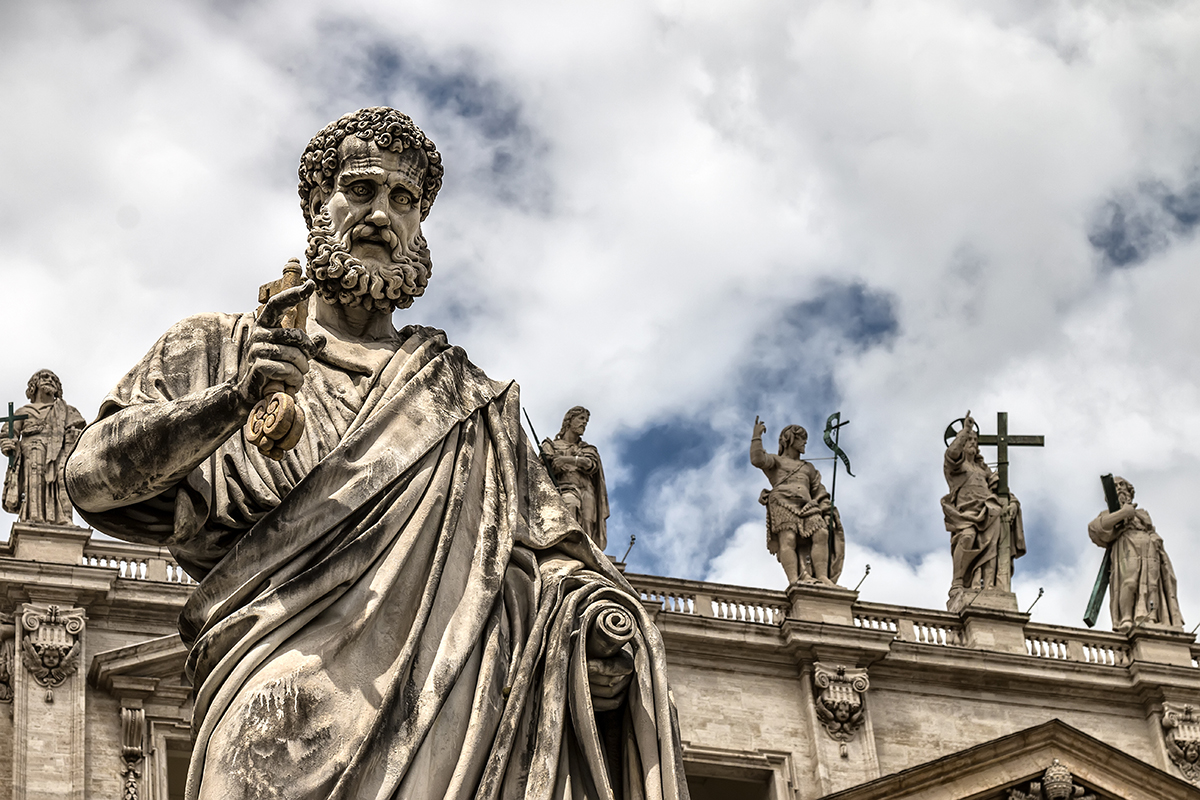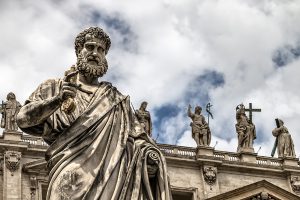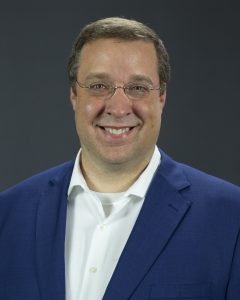
Statue of St. Peter with the key before the cathedral of San Pietro, Vatican City
Wow! Two great questions in the same question! I’d be happy to try to answer them. Let’s start with the first.
As I say all the time, one of my favorite questions with regard to our Catholic faith is one often found on the lips of little children, including my own kids, and that’s the one we’re talking about here: “Why?” As in, “Why do we believe what we believe?” or “Why do we do what we do?”
Sometimes our answer to these questions is, “well, that’s just the way we do things as Catholics,” but at other times, we want more, we need more. We ask this tiny question: “Why?” In fact, and as I indicated in April’s column, I think this is one of the most important questions we can ask, and asking it is often a good thing because it indicates a desire on our part to better understand our faith, and that is a very good thing.

With that in mind, let’s look to the second question: “Why be Catholic?” There are a number of possible answers, but I’d like to focus on one in particular: because it’s true. When someone asks us why we are Catholic, perhaps the best answer is that Catholicism is true. But what does that mean? As Pontius Pilate famously asked Jesus, “What is truth?” (John 18:38)
Simply put, to say that something is true means to say that “that’s the way things are.” To put it more philosophically, to say that something is true means to say that it corresponds to reality. And here is where things can get tricky, especially for Americans when it comes to religion.
One of the dominant views of matters of religion among Americans is the one which sees religion like pizza toppings: pick the one you like the best, and remember that your opinion is your own! We tend to see religion not as a matter of truth—of the way things are—but of opinion: you have yours and I have mine. But this view is, simply put, off-base…it doesn’t correspond to reality itself… it isn’t true!
Take perhaps the most basic religious question: Does God exist? Either he does or he doesn’t; this is not a matter of opinion, but of fact, of reality. To say that God exists for you but not for me doesn’t make sense. It’s like saying that 2+2 is 4 for you but not for me. The Catholic Church claims, then, not only that her teachings come from Jesus (as we saw last month) but that her teachings are true, that they are the way things are, as a matter of fact, not of opinion.
If the answer to the question “why be Catholic?” is “because it’s true,” the appropriate response is our favorite question, “why?” or perhaps more colloquially, “sez who?”
If we understand that the Church is asserting not merely an opinion, but is making a truth-claim, then we must be able to back it up, to explain why Catholicism is true. The branch of theology which is concerned with explaining and defending the teachings of the Church is known as apologetics, which doesn’t mean that we apologize for being Catholic, but rather that we explain what the Church teaches.
As we saw in February, 1 Peter 3:15 tells us, “Always be prepared to make a defense to anyone who calls you to account for the hope that is in you, yet do it with gentleness and reverence.” We are called to be able to explain why we believe what we believe, to be able to back up our claim to the fullness of truth. And as we saw in that column, the great news is that we are able to use our human reason to answer this “why.” In other words, to explain how we know our faith is true doesn’t require that you already believe: we are able to make the case for faith on the basis of reason alone.
Before we wrap up, there’s one final question I think is important to consider as well: “so what?” In other words, even if our faith is true, what does it matter to my life? And the short answer—one that we might elaborate on in future columns—is: everything.
The truths of our Catholic faith have the ability to transform our lives in ways we often don’t even consider. Again, though, more on that in a future column.

In the meantime, I’d encourage you to pray that God might awaken your own sense of wonder and curiosity about our faith, that you, too, might ask “why?” and explore the reasonable basis for our faith by checking out the Additional Resources at the link below.
Be sure to check out the additional resources at sfcatholic.org/answer. If you have a question you need an answer to, email rkranz@sfcatholic.org.
Chris Burgwald holds a doctorate in theology and is the director of discipleship formation for the Diocese of Sioux Falls.


